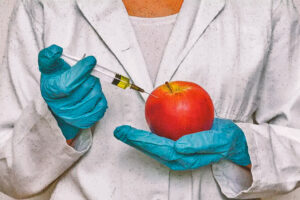By Rafael Castillo M.D.
We discussed last week the important role of breast milk in boosting the resistance of newborn infants and older babies to ward off all types of infections. It just occurred to us that lactating mothers who have abundant breast milk, can use a breast pump to gather their milk and give to members of the household who may have COVID-19. There’s a very high likelihood that it can help in controlling the infection and preventing complications, particularly in high-risk patients.
Recent studies have shown that the lactoferrin (Lf) in bovine (cow, cattle) milk exerts strong antiviral activity. If cow’s milk is good enough, human milk should be many times more effective.
Manolo Gonzalez, a staunch health advocate and member of the Concerned Doctors and Citizens of the Philippines (CDCPh), sent us this message by Viber last week:
“Hi Doc Raffy, your latest article in the Inquirer is brilliant. You also talked about Lactoferrin, but you didn’t mention that in combination with Diphenhydramine (Benadryl), it is outstanding. The results we’ve gotten (including four very sick people in Spain) are spectacular. Very sick people are walking about the next day. We’re also now doing triple combo of Lacto + Benadryl + ivermectin and the results are even more wow!”
Though based in Spain, Manolo has been collaborating with various organizations here to help treat COVID-19 patients, especially in the indigent population.
Manolo’s recommendation of Lf as part of an effective anti-COVID regimen has scientific basis.
Multifunctional protein
Lf is a multifunctional protein synthesized by glands in the breast and other body cells. It has been shown in some laboratory and clinical studies to provide good antiviral activity against SARS-CoV-2, the virus causing COVID-19. The clinical studies are mainly preliminary and observational studies, and more well-designed studies are needed. Though the experts will likely shoot it down again for “insufficiency of evidence,” we dare say again the potential for benefit is so much greater than the potential for harm due to side effects.
Dr. Elena Campione, from the Tor Vergata University Hospital in Rome, Italy and other colleagues from the Department of Public Health and Infectious Diseases at the University of Rome, conducted a preliminary study to assess the antiviral effect of oral (taken by mouth) and intranasal bovine Lf (bLf) in asymptomatic and mild-to-moderate COVID-19 patients. Their study was published in the peer-reviewed International Journal of Environmental Health and Public Health last year.
The recruited COVID-19 patients, either hospitalized or on home-based treatment, were divided into three groups: Group 1 only received oral and intranasal liposomal bLf; group 2 patients were treated only with standard of care (SOC) treatment; and group 3, which consisted of patients on home-based isolation, did not take any medication recommended against COVID-19.
Another group of COVID-19-negative, untreated, healthy subjects were added for additional analysis. This served as a reference group. Based on the study, bLf-treated COVID-19 patients had an earlier and significant recovery and conversion to SARS-CoV-2 RNA negative testing, compared to the SOC-treated and untreated COVID-19 patients (14.25 vs. 27.13 vs. 32.61 days, respectively).
The relief of symptoms was also faster in the bLf-treated COVID-19 patients, compared to the SOC-treated COVID-19 patients. In bLf-treated patients, the researchers also noted a significant decrease in the blood parameters for inflammation: serum ferritin, interleukin-6, and clotting parameter (D-dimers levels). Cellular inflammation and blood clotting are the hallmarks of severe COVID-19. No adverse events or side effects attributable to bLf were reported.
Not new
The authors concluded, “These observations led us to speculate a potential role of bLf in the management of mild to moderate and asymptomatic COVID-19 patients.”
The potential of bLf to help in the prevention and treatment of COVID-19 is not new. We recall that since mid-2020, at about the time when we published our local preliminary report on the efficacy of high-dose melatonin in hospitalized COVID-19 patients with pneumonia, some groups abroad have already been recommending bLf.
Prof. Raymond Chang and his colleagues from the Institute of East–West Medicine in New York, the University of Hong Kong, and the National Taiwan University Hospital published a comprehensive review of available data on bLf in the International Journal of Antimicrobial Agents in September 2020. They explained in detail the scientific basis for the use of Lf against COVID-19.
In their paper, they described Lf, which is abundant in all mammalian milk including human milk, as a glycoprotein containing 703 amino acid nutrients, which are considered important non-specific host defense molecules against a variety of bacteria and viruses. Studies have also indicated that Lf has anti-inflammatory and immunomodulatory effects, which may moderate the host response to infections such as with COVID-19, characterized by excessive inflammation. Lf also has the dual ability to stimulate the immune system to neutralize bacterial or viral invasion and prevent harmful immune and inflammatory responses of the patient.
The antiviral activity of Lf was initially shown in the laboratory in the 1980s, using experimental animals (mice), which they infected with various types of pathogens. According to Chang et al., the list of Lf-susceptible pathogenic human viruses found to be favorably neutralized by Lf have expanded since the 1980s to include DNA and RNA viruses. Included in the list are cytomegalovirus, herpes simplex virus, human immunodeficiency virus (HIV), rotavirus, poliovirus, respiratory syncytial virus, hepatitis B virus, hepatitis C virus (HCV), parainfluenza virus, alphavirus, hantavirus, human papillomavirus, adenovirus, enterovirus 71, echovirus 6, influenza A virus and Japanese encephalitis virus. The SARS CoV-2 virus is a recent addition to the list.
As an antiviral agent, Lf works by inhibiting the entry of viruses into the cells. It does so by binding to cell surface molecules or viral particles, or both. This serves as a wedge preventing viral entry.
Indirect antiviral effect
Another mechanism of action, aside from reducing viral entry, is that Lf can also suppress virus replication and multiplication once inside the cells. Other authors suggest that Lf can also exert an indirect antiviral effect on immune system cells that play a crucial role in the early stages of viral infection.
In humans, oral supplementation with Lf, given in the range of 100–1000 mgs/day, was shown to reduce the incidence of colds and cold-like symptoms, and help relieve gastroenteritis symptoms like diarrhea and intestinal colic. In patients with hepatitis C virus (HCV), a randomized controlled study, comparing patients given Lf versus those given no Lf, along with standard anti-HCV drugs, demonstrated a significant decrease in the levels of HCV viral titers. Investigators also noted a sustained virological response in the Lf group.
So, Lf in cow’s or human milk appears to be a safe and effective broad-spectrum antiviral with immunomodulatory and anti-inflammatory actions that can help patients with severe infections, including COVID-19.
Lf supplements from health stores and standard drugstores are readily available. We have given it to our COVID-19 patients at a dose of 100 mg four times a day. When started early enough and together with the other drugs and supplements in our recommended regimen (ivermectin, melatonin, zinc, vitamin D3, virgin coconut oil), the results in thousands of patients treated by our group in the CDCPh, which is currently headed by Florida-based critical care specialist Dr. Marivic Villa, has been very remarkable, resulting in almost 100-percent recovery.
In the provinces where Lf supplements are not available, fresh cow’s milk, or even human milk, should be equally, if not more effective.
God has really provided so much around us in nature to help lick COVID-19. It’s unfortunate that we keep on looking elsewhere, for more sophisticated and high-tech drugs whose long-term side effects are not known yet.








